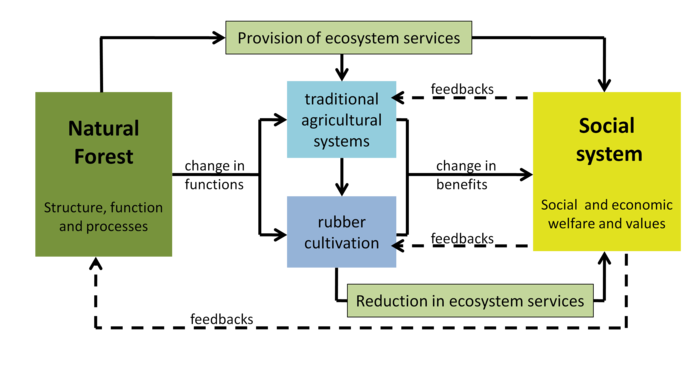Background
SURUMER – Sustainable Rubber Cultivation in the Mekong Region: Development of an integrative land-use concept in Yunnan Province, China
Southern Yunnan is one of the few regions of China with a suitable climate for rubber cultivation. Due to the high demand of rubber in China’s growing economy, the area of rubber cultivation increased drastically within the last decade, along with a reduction of the natural forest cover and changes in land use by the local farmers. This development is accompanied by various problems and threats, which are also of similar concern in the Greater Mekong Subregion (GMS), representing the world’s largest rubber production area. The major fields of problems include:
- Changes in important ecosystem services and functions concerning the local water balance, water quantity and quality by the use of agrochemicals, as well as ecosystem carbon dynamics, which are related to various biological processes, soil fertility and hydrological functions.
- Rubber monocultures reduce agro-biodiversity of traditional land use systems and affect pollinator services for relevant food crops. In addition, expansion of rubber cultivation results in losses of natural biodiversity at landscape and species level due to the reduction of tropical forest areas, which represent a biodiversity hotspot of global importance in the target region.
- Rubber cultivation represents a profitable opportunity for smallholders, but the abandonment of traditional land use systems in favor of a single tree crop implies a higher liability to climatic, pest, disease and economic risks without flexibility for rapid adaptations.
Overall, the reduction of the systems’ structure and diversity causes discontinuities in the provision of ecological service flows, socio-ecological changes and negative impacts on human welfare. These changes may include various feedbacks within the socio-ecological system.



